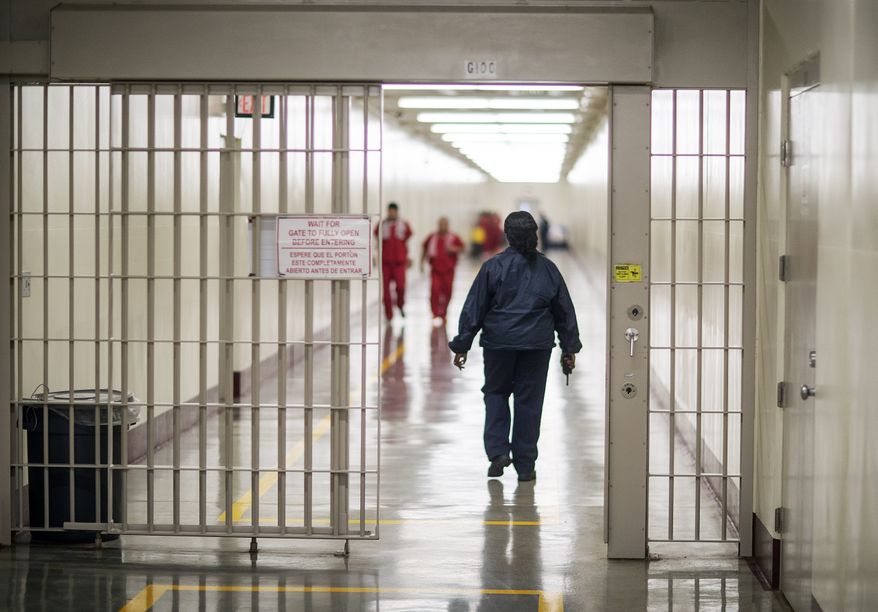Regulatory Review
What Will Happen to DACA?

Despite notching several critical legal victories this year, including one at the U.S. Supreme Court, supporters of a federal program that protects Dreamers—immigrants brought to the United States as children—must put the celebrations on hold yet again.
In the latest chapter of a nearly decade-long legal battle, the fate of that program—called Deferred Action for Childhood Arrivals (DACA)—now lies in the hands of a federal judge in Texas who immigration advocates fear will terminate the program.
DACA began in 2012 when the U.S. Department of Homeland Security (DHS) issued a memorandum making Dreamers eligible to obtain legal status that would defer potential immigration proceedings. This relief, which can be renewed every two years, shields Dreamers who meet stringent criteria from deportation and allows them to obtain work authorization among other benefits. Since its enactment, DACA has protected 800,000 noncitizens from deportation and more than 1.3 million other immigrants remain eligible for the program.
For years, DACA had enjoyed wide bipartisan support. But in 2017 the Trump Administration attempted to rescind the program, claiming that it was “an unconstitutional exercise of authority by the Executive Branch.” In response, multiple plaintiffs challenged the rescission as “arbitrary and capricious” in violation of the Administrative Procedure Act. This summer, the Supreme Court agreed with the plaintiffs, upholding the program against the Trump Administration’s effort to disband it—a major victory for the program’s beneficiaries and immigration advocates.
Following the Supreme Court’s decision, a federal judge ordered DHS to restore the program to its original form after the agency refused to do so. The judge specifically required DHS to resume reviewing and approving new DACA applications and work permits immediately, marking another victory for the program’s supporters.
But ongoing litigation in Texas threatens DACA supporters’ winning streak.
This case began in 2018 when Texas Attorney General Ken Paxton and several other states filed a lawsuit arguing that DHS exceeded its authority by creating DACA without the consent of Congress. Because this case is the only one that directly challenges DACA’s legality, an adverse decision in this litigation could permanently end the program—an outcome that became more likely when the case was transferred to Judge Andrew S. Hanen, according to some advocates.
Appointed by President George W. Bush, Judge Hanen is perhaps best known for his 2015 decision to enjoin two other Obama-era immigration initiatives closely related to DACA. The first initiative sought to expand DACA to include an additional 330,000 people. The second initiative aimed to offer DACA-like protections to undocumented parents of U.S. citizens or lawful permanent residents.
In that litigation, 26 states challenged the two initiatives in Southern Texas, knowing they were likely to come before Judge Hanen, whose earlier rebukes of President Obama’s immigration policies “made him an inviting decision-maker.” When the case was indeed assigned to Judge Hanen, one commentator concluded that the plaintiff states had “already won the first round in court.”
As predicted, Judge Hanen enjoined the two initiatives, holding that President Obama exceeded his authority when he enacted them. The U.S. Court of Appeals for the Fifth Circuit—perhaps the most conservative federal appeals court in the country—upheld Judge Hanen’s decision. On further appeal, the Supreme Court—with only eight justices after Justice Antonin Scalia’s untimely death—was evenly divided on the issue, which meant Judge Hanen’s initial injunction remained in place. Although the ruling had no effect on DACA itself, it effectively terminated the two related initiatives.
When the Texas attorney general and other plaintiff states mounted the 2018 challenge to DACA’s legality, they relied heavily on the reasoning Judge Hanen employed when he enjoined the two DACA-related programs. But, in a decision that surprised some observers, Judge Hanen declined to halt DACA at the outset of litigation. Although the judge believed the program was likely illegal, he explained, “the egg has been scrambled,” and thus it did not make sense to “put it back in the shell,” at least until he could consider the parties’ arguments in full.
In 2020, shortly after the Supreme Court rejected the Trump Administration’s rescission attempt, Judge Hanen directed the parties to bring their claims before him once more, suggesting he might be prepared to put the eggs back in the shell….read the rest here.


















Republicans’ Georgia election troubles went deep down the ballot last month, including losing two sheriff’s jobs that flipped to Democrats, both of whom have promised to end cooperative agreements with ICE.
Craig Owens, the winner in Cobb County, has said he wants to suspend all dealings with U.S. Immigration and Customs Enforcement. Keybo Taylor, in Gwinnett County, hasn’t gone that far but is planning to cancel the 287(g) agreement that effectively deputizes the county’s officers to begin the deportation process for deportable migrants booked into local jails.
The results could be devastating to ICE.
Gwinnett this year ranks third of all U.S. counties in migrants flagged for deportation, with the vast majority of those coming out of the 287(g) program.
In Athens-Clarke County doesn’t take part in 287(g), but the incoming sheriff, who unseated a fellow Democrat in a primary this year, campaigned on a promise of refusing other forms of cooperation with ICE, effectively creating a sanctuary.
Named after the section of immigration law that created it, the 287(g) program allows ICE to sign partnership agreements with state and local law enforcement. Officers and deputies go through ICE training and can then begin the deportation process for migrants who come through their prisons or jails and are removable under the law.
There used to be another side to 287(g). The task force model trained officers and deputies who went out on patrol, but the Obama administration canceled those agreements.
The Obama team did, though, see value in the jail model. It argued that immigrants with rap sheets were worthy targets for deportation.
Immigrant rights activists disagree. They say too many migrants are being snared for what they consider to be relatively low-level offenses.
Activists have pressured some of the country’s largest jurisdictions to withdraw from the program and, in many cases, to refuse cooperation at all.
Prince William County in Virginia allowed its 287(g) program to lapse this summer. Los Angeles County’s sheriff canceled all cooperation in August.
All told, 28 jurisdictions have ended 287(g) deals, according to the Immigrant Legal Resource Center.
Still, more jurisdictions are enrolled now than were at the start off the Trump administration, thanks to strenuous efforts by ICE and sheriffs who see value in cooperating.
In Gwinnett, Sheriff Butch Conway decided to step down after 24 years and didn’t run this year. He said the 287(g) program cut his jail population over the past decade, even as the county grew by more than 300,000 residents.
He said working with ICE helped keep the deportation agency’s own efforts focused on criminals while protecting illegal immigrants who managed to keep clean rap sheets.
“I had been with ICE prior to implementing the program when they attempted to apprehend subjects and took anyone at the location they found without documentation into custody to be deported. Under 287(g), this didn’t occur,” Sheriff Conway told The Washington Times.
Neither Mr. Taylor nor Mr. Owens responded to multiple requests for comment from The Washington Times, but both confirmed to The Atlanta Journal-Constitution this month that they will follow through on their promises to curtail cooperation.
The Times reached out to a number of Georgia-based migrant rights groups, but none replied for this article.
Not all will go free if Mr. Taylor holds to his promise to cooperate with ICE detainer requests. But without deputies on duty 24/7, some will be released without ICE having a chance to pick them up.
ICE is still holding out hope for some cooperation…